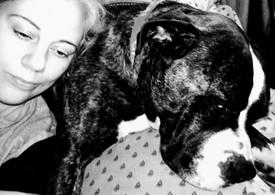When sleep goes down, weight goes up (and muscle mass goes down).
Options
Replies
-
The only thing I notice with lack of sleep is that my water weight goes up. (I attribute it more to stress-related -- when I'm exhausted, I'm more stressed, and then get more stressed thinking about being stressed, etc, etc).
Once I start getting regular sleep, my weight whooshes all the water weight off. (I can tell because I feel it in my fingers and I know it's all water weight).
My weight loss rate slows down a little bit because my neat activity drops like an anchor! I'm a bouncy, twitchy person but after a bout of insomnia, I might as well be a zombie. No longer dancing at the coffee machine, twitching my feet and bouncing in my seat while I code, moving my little foot thing under the desk, bouncing up and down from my chair to go talk to people. I'm more likely to sit and stare at the computer and not move.
Other than that, lack of sleep has had a very small impact on my overall weight loss.2 -
Autism usually comes with sleep issues. There's nothing I can do about that. Deep sleep continuity is always pretty dire, and I've never had 8 solid hours. I don't know what proper sleep would do for my health.
These studies on the impact of poor sleep are always rather depressing.2 -
Why We Sleep - Matthew walker - is a good read and talks about the study referenced by the OP1
-
glovepuppet wrote: »Autism usually comes with sleep issues. There's nothing I can do about that. Deep sleep continuity is always pretty dire, and I've never had 8 solid hours. I don't know what proper sleep would do for my health.
These studies on the impact of poor sleep are always rather depressing.
That's interesting. I've always had sleep issues, but did not realize I was an Aspie until just a few years ago.0 -
I was actually relieved in a way, because I no longer felt pressured to take any of the endless words of well intentioned advice on what will absolutely cure my sleep issues.Mouse_Potato wrote: »glovepuppet wrote: »Autism usually comes with sleep issues. There's nothing I can do about that. Deep sleep continuity is always pretty dire, and I've never had 8 solid hours. I don't know what proper sleep would do for my health.
These studies on the impact of poor sleep are always rather depressing.
That's interesting. I've always had sleep issues, but did not realize I was an Aspie until just a few years ago.
It's possible that we wouldn't have the same response to lack of sleep as neurotypicals. It's one of those "more research is needed" things.1 -
I used to think I got a decent amount of sleep, 7-8 hours. Then I got a FitBit and I have lots of data that told me I slept closer to 6 hours a night on the regular, sometimes less. Until last night, I'd only had one night that I got over 8 hours since I bought the Fitbit.
Went to bed early, got over 9 hours last night. I woke up feeling well. Don't intend to get 9+ hours every night, but it was nice.
I guess I'll see if I can maintain a positive change in my sleep levels if it has an effect it has on my overall wellbeing.1 -
Recently saw a dietitian (RD, Sports Nutrition) who said lack of quality sleep upsets the body's circadian rhythm and hormones such as cortisol, making it difficult, but not impossible, to lose or maintain weight. Could be a reason for weight issues with night workers.
I was given several practical suggestions to get more and better sleep. All I can do is follow dietary advice and this, and see if there's a change.0
Categories
- All Categories
- 1.4M Health, Wellness and Goals
- 392K Introduce Yourself
- 43.6K Getting Started
- 259.8K Health and Weight Loss
- 175.7K Food and Nutrition
- 47.4K Recipes
- 232.3K Fitness and Exercise
- 401 Sleep, Mindfulness and Overall Wellness
- 6.4K Goal: Maintaining Weight
- 8.5K Goal: Gaining Weight and Body Building
- 152.8K Motivation and Support
- 7.9K Challenges
- 1.3K Debate Club
- 96.3K Chit-Chat
- 2.5K Fun and Games
- 3.4K MyFitnessPal Information
- 23 News and Announcements
- 995 Feature Suggestions and Ideas
- 2.4K MyFitnessPal Tech Support Questions





